-
 Bitcoin
Bitcoin $117300
1.99% -
 Ethereum
Ethereum $3884
5.89% -
 XRP
XRP $3.268
9.33% -
 Tether USDt
Tether USDt $1.000
0.02% -
 BNB
BNB $783.0
1.78% -
 Solana
Solana $173.6
3.51% -
 USDC
USDC $0.9999
0.00% -
 Dogecoin
Dogecoin $0.2193
7.00% -
 TRON
TRON $0.3380
0.30% -
 Cardano
Cardano $0.7769
5.08% -
 Stellar
Stellar $0.4350
9.36% -
 Hyperliquid
Hyperliquid $40.23
5.78% -
 Sui
Sui $3.739
6.95% -
 Chainlink
Chainlink $18.30
9.46% -
 Bitcoin Cash
Bitcoin Cash $581.7
2.11% -
 Hedera
Hedera $0.2577
5.51% -
 Ethena USDe
Ethena USDe $1.001
0.00% -
 Avalanche
Avalanche $23.08
4.23% -
 Litecoin
Litecoin $121.7
2.24% -
 UNUS SED LEO
UNUS SED LEO $8.962
-0.34% -
 Toncoin
Toncoin $3.332
1.36% -
 Shiba Inu
Shiba Inu $0.00001273
3.39% -
 Uniswap
Uniswap $10.35
6.84% -
 Polkadot
Polkadot $3.818
4.01% -
 Dai
Dai $1.000
0.01% -
 Bitget Token
Bitget Token $4.446
2.13% -
 Cronos
Cronos $0.1491
4.96% -
 Monero
Monero $255.4
-9.78% -
 Pepe
Pepe $0.00001099
4.80% -
 Aave
Aave $284.0
8.01%
What is Kraken's compliance? Which countries are regulated?
Kraken ensures compliance with AML and KYC regulations across the US, EU, Canada, Australia, and Japan, maintaining a secure and trusted platform for cryptocurrency trading.
May 16, 2025 at 02:29 am
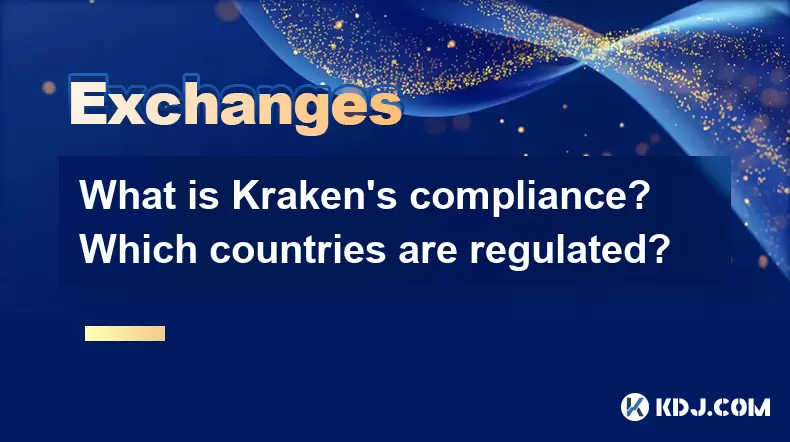
Kraken is one of the leading cryptocurrency exchanges known for its robust security measures and extensive range of trading options. A crucial aspect of Kraken's operations is its commitment to compliance with various regulatory frameworks around the world. This article delves into Kraken's compliance efforts and the countries where it is regulated.
Understanding Kraken's Compliance
Kraken's commitment to compliance is rooted in its mission to provide a safe and secure platform for trading cryptocurrencies. Compliance in the context of cryptocurrency exchanges refers to adherence to legal and regulatory standards set by various jurisdictions. Kraken works diligently to meet these standards, ensuring that it operates within the bounds of the law and protects its users.
Kraken's compliance efforts are multifaceted, involving everything from anti-money laundering (AML) policies to know your customer (KYC) procedures. These measures are designed to prevent illegal activities such as fraud, money laundering, and terrorist financing. By implementing strict compliance protocols, Kraken aims to maintain the integrity of its platform and build trust with its users.
Kraken's AML and KYC Policies
One of the cornerstones of Kraken's compliance strategy is its anti-money laundering (AML) and know your customer (KYC) policies. AML policies are designed to detect and prevent the use of the platform for money laundering activities. Kraken employs advanced monitoring systems to track transactions and identify any suspicious activity.
KYC procedures, on the other hand, are used to verify the identity of users. This involves collecting personal information such as names, addresses, and identification documents. Kraken's KYC process is thorough, ensuring that only legitimate users can access the platform. This not only helps prevent fraud but also complies with regulatory requirements in various jurisdictions.
Regulatory Compliance in the United States
In the United States, Kraken is subject to regulation by several federal and state agencies. The Financial Crimes Enforcement Network (FinCEN) requires Kraken to register as a Money Services Business (MSB) and comply with AML and KYC regulations. Kraken has successfully registered with FinCEN, demonstrating its commitment to compliance.
Additionally, Kraken is regulated by state-level agencies in certain states. For example, in New York, Kraken is registered with the New York State Department of Financial Services (NYDFS) under the BitLicense framework. This license allows Kraken to operate legally in New York and ensures that it adheres to the state's stringent regulatory standards.
Compliance in the European Union
Kraken's compliance efforts extend to the European Union, where it operates under the Fifth Anti-Money Laundering Directive (5AMLD). This directive requires cryptocurrency exchanges to implement robust AML and KYC measures. Kraken has adapted its policies to comply with 5AMLD, ensuring that it meets the EU's regulatory requirements.
In addition to 5AMLD, Kraken is also subject to regulation by individual EU member states. For instance, in Germany, Kraken is registered with the Federal Financial Supervisory Authority (BaFin). This registration allows Kraken to offer its services to German residents while adhering to BaFin's regulatory standards.
Regulation in Canada
In Canada, Kraken is regulated by the Financial Transactions and Reports Analysis Centre of Canada (FINTRAC). FINTRAC requires cryptocurrency exchanges to register as Money Services Businesses and comply with AML and KYC regulations. Kraken has successfully registered with FINTRAC, demonstrating its commitment to compliance in the Canadian market.
Kraken's compliance with FINTRAC's regulations ensures that it can operate legally in Canada and provide its services to Canadian users. This registration also helps Kraken maintain a high standard of security and integrity on its platform.
Compliance in Australia
In Australia, Kraken is regulated by the Australian Transaction Reports and Analysis Centre (AUSTRAC). AUSTRAC requires cryptocurrency exchanges to register as Digital Currency Exchange Providers and comply with AML and KYC regulations. Kraken has registered with AUSTRAC, ensuring that it meets the regulatory requirements in Australia.
Kraken's compliance with AUSTRAC's regulations allows it to offer its services to Australian users while maintaining a high level of security and integrity. This registration is a testament to Kraken's commitment to compliance across different jurisdictions.
Kraken's Compliance in Japan
Japan is known for its stringent regulations on cryptocurrency exchanges, and Kraken is no exception. Kraken is registered with the Financial Services Agency (FSA) of Japan, which requires exchanges to comply with strict AML and KYC regulations. Kraken's registration with the FSA allows it to operate legally in Japan and provide its services to Japanese users.
Kraken's compliance with Japan's regulatory framework ensures that it can maintain a high standard of security and integrity on its platform. This registration is crucial for Kraken to continue operating in one of the world's most important cryptocurrency markets.
Frequently Asked Questions
Q: How does Kraken ensure the privacy of its users while complying with KYC regulations?
A: Kraken balances user privacy with compliance by collecting only the necessary information required by regulatory bodies. The platform uses secure encryption methods to protect user data and ensures that personal information is not shared with third parties unless required by law.
Q: Can users from countries where Kraken is not regulated still use the platform?
A: Yes, users from countries where Kraken is not regulated can still use the platform. However, they may be subject to additional verification processes and restrictions based on their location. Kraken continually works to expand its regulatory compliance to more countries.
Q: How often does Kraken update its compliance policies?
A: Kraken regularly reviews and updates its compliance policies to ensure they align with the latest regulatory requirements. This includes monitoring changes in laws and regulations across different jurisdictions and implementing necessary updates to its AML and KYC procedures.
Q: What happens if a user fails to comply with Kraken's KYC requirements?
A: If a user fails to comply with Kraken's KYC requirements, their account may be restricted or suspended until the necessary information is provided. Kraken takes compliance seriously and may take further action, including account closure, if users repeatedly fail to meet KYC standards.
Disclaimer:info@kdj.com
The information provided is not trading advice. kdj.com does not assume any responsibility for any investments made based on the information provided in this article. Cryptocurrencies are highly volatile and it is highly recommended that you invest with caution after thorough research!
If you believe that the content used on this website infringes your copyright, please contact us immediately (info@kdj.com) and we will delete it promptly.
- Cold Wallet Crypto in 2025: The Future is Now, Ya'll
- 2025-08-08 05:10:13
- MAGACOIN, SOL, and ADA: A Tale of Shifting Tides in Crypto
- 2025-08-08 05:10:13
- SHIB Price, PEPE, and the Memecoin Supercycle: Who Will Reign Supreme?
- 2025-08-08 05:50:12
- Pudgy Penguins Price Prediction: Google Trends & Breakout Signals
- 2025-08-08 05:50:12
- UAE Crypto Regulation: SCA and VARA Unite to Streamline the Future of Digital Assets
- 2025-08-08 05:55:48
- MAGACOIN Finance: The Presale Phenomenon Rocking the Crypto World
- 2025-08-08 05:55:48
Related knowledge
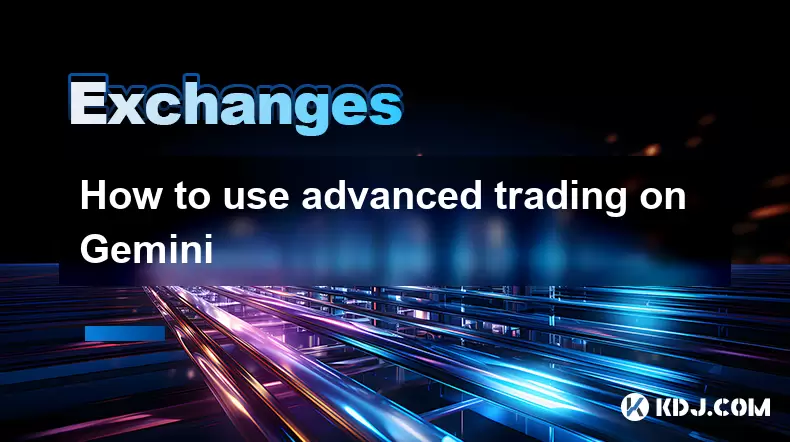
How to use advanced trading on Gemini
Aug 08,2025 at 04:07am
Understanding Advanced Trading on GeminiAdvanced trading on Gemini refers to a suite of tools and order types designed for experienced traders who wan...
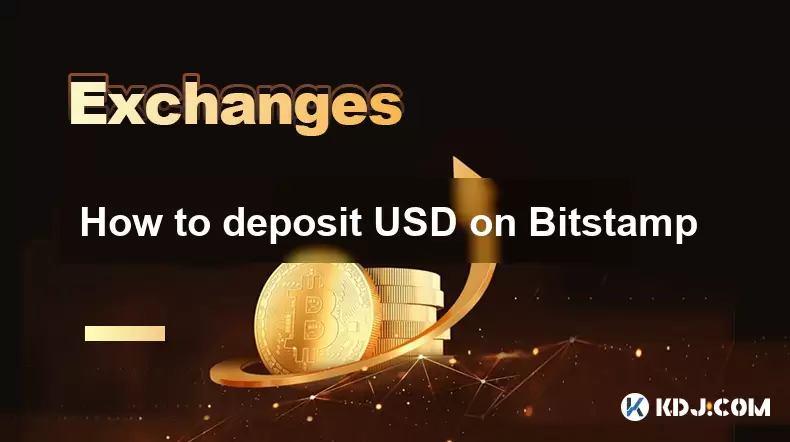
How to deposit USD on Bitstamp
Aug 07,2025 at 05:18pm
Understanding Bitstamp and USD DepositsBitstamp is one of the longest-standing cryptocurrency exchanges in the industry, offering users the ability to...
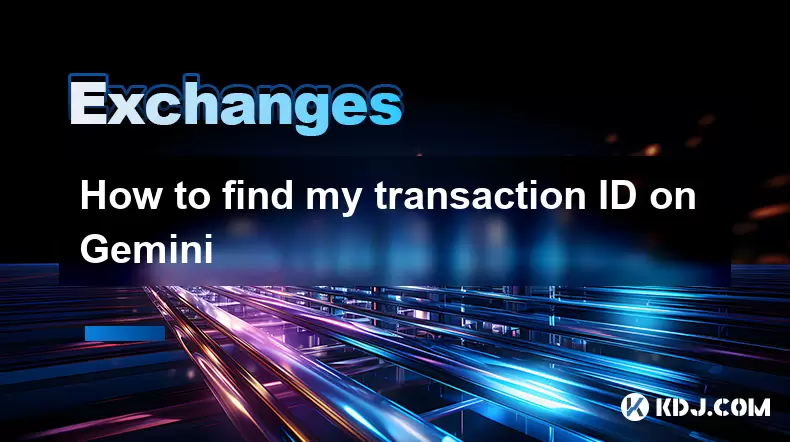
How to find my transaction ID on Gemini
Aug 08,2025 at 12:50am
Understanding the Transaction ID in Cryptocurrency ExchangesA transaction ID (TXID) is a unique alphanumeric string that identifies a specific transfe...
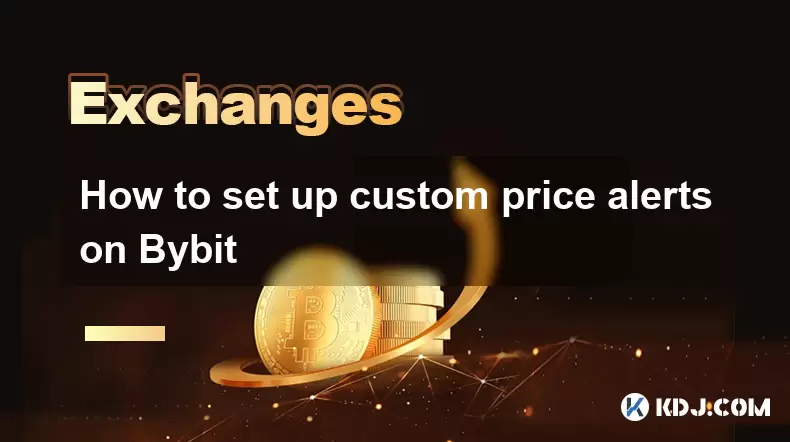
How to set up custom price alerts on Bybit
Aug 07,2025 at 04:31pm
Understanding Price Alerts on BybitPrice alerts on Bybit are essential tools for traders who want to stay informed about significant price movements i...
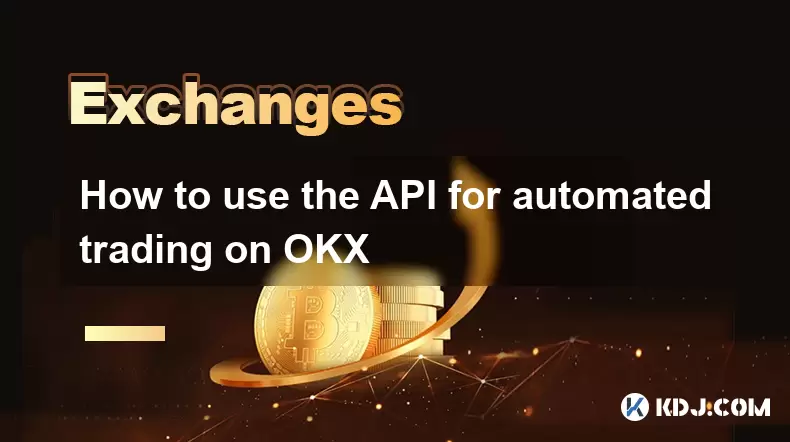
How to use the API for automated trading on OKX
Aug 07,2025 at 05:21pm
Understanding the OKX API for Automated TradingThe OKX API provides a powerful interface for users to automate their trading strategies, access real-t...
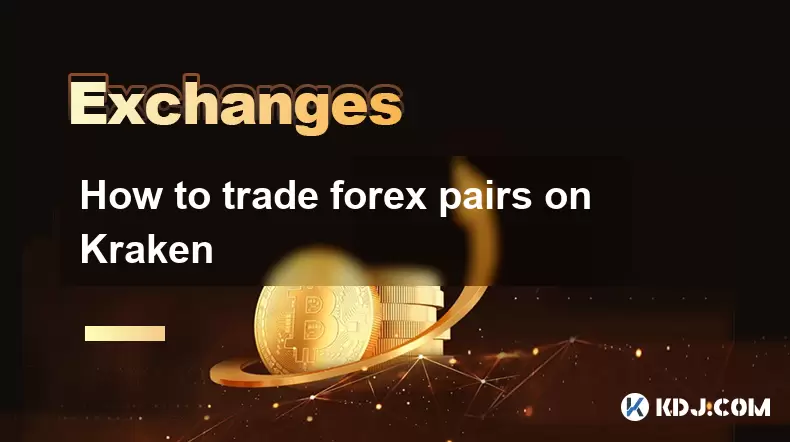
How to trade forex pairs on Kraken
Aug 07,2025 at 11:49pm
Understanding Forex Pairs on KrakenKraken is primarily known as a cryptocurrency exchange, but it also supports select forex pairs through its Kraken ...

How to use advanced trading on Gemini
Aug 08,2025 at 04:07am
Understanding Advanced Trading on GeminiAdvanced trading on Gemini refers to a suite of tools and order types designed for experienced traders who wan...

How to deposit USD on Bitstamp
Aug 07,2025 at 05:18pm
Understanding Bitstamp and USD DepositsBitstamp is one of the longest-standing cryptocurrency exchanges in the industry, offering users the ability to...

How to find my transaction ID on Gemini
Aug 08,2025 at 12:50am
Understanding the Transaction ID in Cryptocurrency ExchangesA transaction ID (TXID) is a unique alphanumeric string that identifies a specific transfe...

How to set up custom price alerts on Bybit
Aug 07,2025 at 04:31pm
Understanding Price Alerts on BybitPrice alerts on Bybit are essential tools for traders who want to stay informed about significant price movements i...

How to use the API for automated trading on OKX
Aug 07,2025 at 05:21pm
Understanding the OKX API for Automated TradingThe OKX API provides a powerful interface for users to automate their trading strategies, access real-t...

How to trade forex pairs on Kraken
Aug 07,2025 at 11:49pm
Understanding Forex Pairs on KrakenKraken is primarily known as a cryptocurrency exchange, but it also supports select forex pairs through its Kraken ...
See all articles

























































































